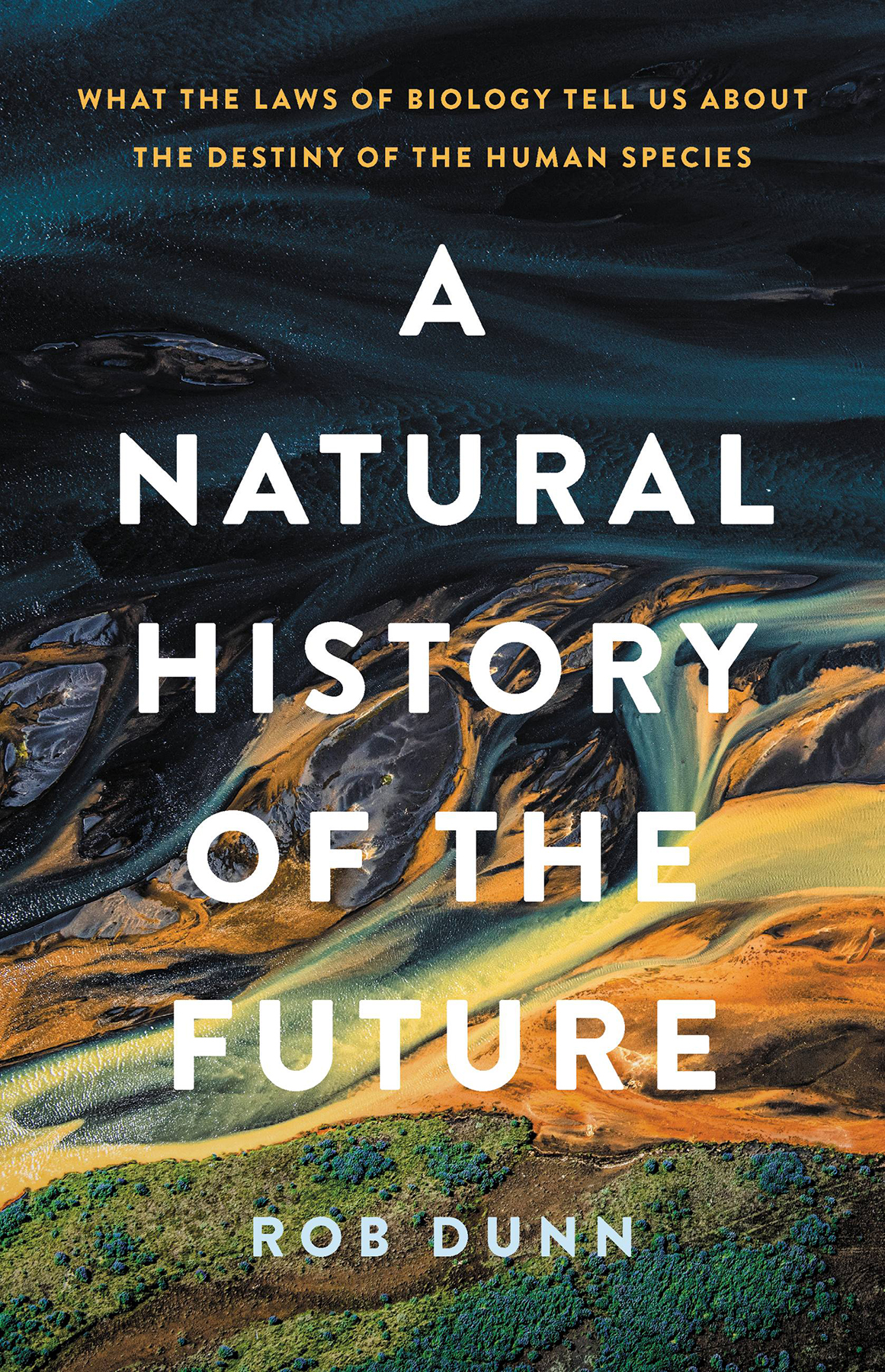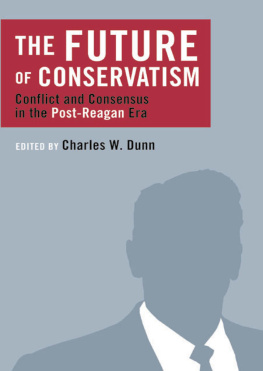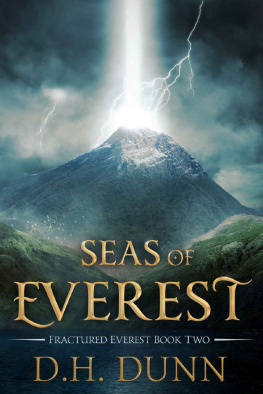Rob Dunn - A Natural History of the Future
Here you can read online Rob Dunn - A Natural History of the Future full text of the book (entire story) in english for free. Download pdf and epub, get meaning, cover and reviews about this ebook. year: 2021, publisher: Basic Books, genre: Romance novel. Description of the work, (preface) as well as reviews are available. Best literature library LitArk.com created for fans of good reading and offers a wide selection of genres:
Romance novel
Science fiction
Adventure
Detective
Science
History
Home and family
Prose
Art
Politics
Computer
Non-fiction
Religion
Business
Children
Humor
Choose a favorite category and find really read worthwhile books. Enjoy immersion in the world of imagination, feel the emotions of the characters or learn something new for yourself, make an fascinating discovery.

- Book:A Natural History of the Future
- Author:
- Publisher:Basic Books
- Genre:
- Year:2021
- Rating:5 / 5
- Favourites:Add to favourites
- Your mark:
- 100
- 1
- 2
- 3
- 4
- 5
A Natural History of the Future: summary, description and annotation
We offer to read an annotation, description, summary or preface (depends on what the author of the book "A Natural History of the Future" wrote himself). If you haven't found the necessary information about the book — write in the comments, we will try to find it.
A Natural History of the Future — read online for free the complete book (whole text) full work
Below is the text of the book, divided by pages. System saving the place of the last page read, allows you to conveniently read the book "A Natural History of the Future" online for free, without having to search again every time where you left off. Put a bookmark, and you can go to the page where you finished reading at any time.
Font size:
Interval:
Bookmark:


Copyright 2021 by Rob R. Dunn
Cover design by Chin-Yee Lai
Cover image EXTREME-PHOTOGRAPHER via Getty Images
Cover copyright 2021 by Hachette Book Group, Inc.
Hachette Book Group supports the right to free expression and the value of copyright. The purpose of copyright is to encourage writers and artists to produce the creative works that enrich our culture.
The scanning, uploading, and distribution of this book without permission is a theft of the authors intellectual property. If you would like permission to use material from the book (other than for review purposes), please contact permissions@hbgusa.com. Thank you for your support of the authors rights.
Basic Books
Hachette Book Group
1290 Avenue of the Americas, New York, NY 10104
www.basicbooks.com
First Edition: November 2021
Published by Basic Books, an imprint of Perseus Books, LLC, a subsidiary of Hachette Book Group, Inc. The Basic Books name and logo is a trademark of the Hachette Book Group.
The Hachette Speakers Bureau provides a wide range of authors for speaking events. To find out more, go to www.hachettespeakersbureau.com or call (866) 376-6591.
The publisher is not responsible for websites (or their content) that are not owned by the publisher.
Library of Congress Cataloging-in-Publication Data
Names: Dunn, Rob R., author.
Title: A natural history of the future : what the laws of biology tell us
about the destiny of the human species / Rob Dunn.
Description: First edition. | New York : Basic Books, 2021. | Includes bibliographical references and index.
Identifiers: LCCN 2021012189 | ISBN 9781541619302 (hardcover) | ISBN 9781541619296 (ebook)
Subjects: LCSH: NatureEffect of human beings on. | Human ecology. | Environmental sociology. | Ecological forecasting. | Environmental policy.
Classification: LCC GF75 .D86 2021 | DDC 304.2dc23
LC record available at https://lccn.loc.gov/2021012189
ISBNs: 978-1-5416-1930-2 (hardcover), 978-1-5416-1929-6 (ebook)
E3-20211004-JV-NF-ORI
To my father,
who always likes to have a plan.
Explore book giveaways, sneak peeks, deals, and more.

I GREW UP LISTENING TO STORIES OF RIVERS. IN THE STORIES, HUMANS confronted the rivers. In the stories, the river always won.
In my childhood the rivers were the Mississippi River and its tributaries. I grew up in Michigan, but my fathers fathers family was from the town of Greenville, Mississippi. The Greenville of my grandfathers childhood was located on the ancient floodplain behind the earthen levee meant to hold the Mississippi River back. The Mississippi River could swallow boats. It would swallow small boys. And when my grandfather was about nine years old, it swallowed the entire town of Greenville. Houses floated downriver. Cows were strangled on their ropes as the river pulled them away. Many hundreds of people drowned. The town was never the same afterward.
The Great Flood, which occurred in 1927, was the sort of disaster that seemed to demand an explanation. The explanation depended on who was telling the story. One version blamed gentlemen from Arkansas, Mississippis cross-river neighbor to the west. If the levee holding back the river on the Mississippi side were to break, the water would inundate Mississippi and spare Arkansas, which is just what happened during the Great Flood. Hence, some say (with no evidence whatsoever) that a group of gentlemen from Arkansas took their boats across the river and used dynamite to blow a hole in the levee and flood Greenville. In other versions, the flood was brought forth as the punishment of an angry God. Floodwaters and plagues have been among the favorite tools of vengeful gods going back to the earliest recorded Sumerian stories. In the version of the story I remember hearing most often, the water simply got too high and eventually began to make the levee bubble and then liquify. In some of the retellings, my grandfather was the boy who spotted the place where the levee began to liquify and notified people in town.
The truest story about the flood of Greenville is that it was caused by human attempts to control the river. It is in the nature of rivers to meander beyond their banks, carving new courses across the landscape. But a meandering river was and is ill-suited for houses, let alone cities, built near the river. It was and is ill-suited for big ports built along the river. In the years leading up to the Great Flood, the people living along the river spent inordinate amounts of money building levees to keep the river from meandering. The course of the river, previously governed by time, physics, and chance, was made artificial. It would be said that it was tamed, controlled, and even civilized so as to allow cities to grow and wealth to accumulate. The taming of the river was carried out with a sense of pride and, at times, hubris. It was the hubris associated with a belief in the ability of humans to take nature and bend it to a more human design.
The geography of Louisiana, for instance, is the consequence of the rivers ancient movements; the state is the mouth of the river that drains a continent.
Trees evolved to rely on the floods and movements of the rivers, as did grasses. Fish relied on this swamping exuberance of water as part of their natural cycle of life and death. Native Americans along the Mississippi timed their farming, foraging, and ceremonies to these cycles and built settlements on ground high enough to escape the water when necessary. Nature and Native Americans alike responded to the river by working with it, taking advantage of its inevitable seasons and episodes. But the large-scale commercial transport along the Mississippi that fed early industrialization could not wait on nature and could not be bothered with its seasons or chronic movements. The early days of American industrialization required that boats travel on regular schedules and that cities, the ultimate destinations of the boats goods, be as close as possible to the river. Industrialization required the river to be consistent, not just predictable.
Attempts to make the river consistent were attempts to make the river part of the broader realm of human control. Its banks were talked about as though they were analogous to pipes through which water flowed and could be redirected, slowed, sped up, or even stopped. The consequences of this view of the river were
Even now that it is even more restrained, the Mississippi River will continue, every so often, to eat boats, small boys, and farms. It will flood towns, and we will be somehow surprised when it does. These floods will grow worse because of climate change. The rivers predations are a reminder that nature will devour human attempts to escape, combat, or dominate nature. In this, the Mississippi River is like the river of life of which we are part. Our attempts to control the Mississippi are a metaphor for our attempts to control nature in general, but especially for our attempts to control life.
When we imagine the future, it is common to imagine ourselves nested within an ecosystem of technology, an ecosystem populated by robots, devices, and virtual realities. The future is shining and technological. The future is digital, ones and zeros, electricity and invisible connections. The dangers of the futureautomation and artificial intelligenceare, as a slew of new books have pointed out, of our own invention. Nature is an afterthought in our contemplation of what comes next, a transgenic potted plant behind a window that does not open. Most depictions of the future do not even include nonhuman life, except on distant farms (tended by robots) or in indoor gardens.
Font size:
Interval:
Bookmark:
Similar books «A Natural History of the Future»
Look at similar books to A Natural History of the Future. We have selected literature similar in name and meaning in the hope of providing readers with more options to find new, interesting, not yet read works.
Discussion, reviews of the book A Natural History of the Future and just readers' own opinions. Leave your comments, write what you think about the work, its meaning or the main characters. Specify what exactly you liked and what you didn't like, and why you think so.










